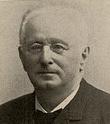Mercurius [Merc]
Bleeding preceded by pressure around the head, as from a band;nosebleed from coughing and during sleep;BLOOD HANG DOWN LINK BLACK ICICLES AFTER COAGULATING in nose (Croc., kali bi); glandular swelling, sore mouth, etc., helminthiasis.
Mezereum [Mez]
Bleeding from right nostril in the evening before going to sleep; blood bright-red; trickling of blood from right nostril.
Millefolium [Mill]
Excessive nosebleed in congestions to chest and head; piercing pains from eyes to root of nose blood bright-red, arterial, flowing without apparent cause.
Moschus [Mosch]
Nosebleed with paleness of face and painting, one cheek hot without redness, t he other red without heat.
Natrum-mur [Nat-m]
Nosebleed with stooping or when coughing at night; very frequent and blowing much clotted blood from the nose.
Natrum-sulph [Nat-s]
Nosebleed during menses stops and returns often, especially early in. the morning; nosebleed before menses bright-red, sometimes also while sitting, even at night in bed.
Nitric-acid [Nit-ac]
Exhausting epistaxis of venous blood;gums swollen and dark red, easily bleeding, (<) by water and washing, from weeping, at night and in the morning;stitches, as from a splinter in the nose, on touch; acrid watery discharge from nose.
Nux-moschata [Nux-m]
Nosebleed, blood dark; black; over sensitiveness of smell.
Nux-vomica [Nux-v]
Epistaxis from suppressed haemorrhoidal flow, (<)mornings, proceeded or accompanied by frontal headache, red cheeks and cephalic congestion;during sleep;blood usually dark.
Phosphorus [Phos]
Nosebleed while straining at stool or early in the morning in tall, slim girls at the age of puberty;severe epistaxis during diphtheria, following detachment of the membrane from the nose;profuse bleeding from nose,. often accompanied by profuse sweat;bloody streams in the morning in tall, slim girls at the age of puberty;severe epistaxis during diphtheria, following detachment of the membrane from the nose;profuse bleeding from nose, often accompanied by prophase sweat;bloody streaks in the nasal mucus.
Pulsatilla [Puls]
NOSEBLEED FROM SUPPRESSED MENSES, blood partly fluid and partly clotted, intermitting in intensity, (<) by going into a warm room or in a recumbent position. Nose bleed with dry coryza in anaemic women whose course are scanty, late or suppressed.
Rhus-tox [Rhus-t]
Frequent nosebleed, almost only when stooping, at stool or from exertion;at night or in the morning; blood coagulates quickly, of a bright color.
Sarsaparilla [Sars]
Epistaxis with feeling as if smell bubbles were bursting in the nose; bleeding from each nostril, when blowing nose, light-colored blood.
Secale-corn [Sec]
DARK, THIN BLOOD FLOWS STEADILY with great prostration and thready pulse due to previous bleeding; in old people or drunkards or in young feeble women.
Sepia [Sep]
Epistaxis during pregnancy or child, or in women suffering from uterine disorders in whom the menses were absent for sometime, especially if brought about by a fall or blow on ]the nose (Arnica,Cicuta), and frequently recurring at the least touch of the nose; bright-red flow suddenly appearing and as suddenly disappearing, in the morning and also several times during the day.
Silicea [Sil]
Profuse epistaxis;l drops of blood fall from the nose at times, on stooping, by picking inside of nose; at dinner; profuse, dark- red flow from right nostril with relief of headache.
Spigelia [Spig]
Violent nosebleed with endocarditis (Cart)sneezing, with discharge of bloody mucus in the morning after walking.
Stramonium [Stram]
Black haemorrhage from nose, followed by warm sweat and general relief;nosebleed, dark, in pumps; in whooping-cough.
Sulphur [Sulph]
Nosebleed at 3 P.M. (Bryonia, 3 A.M.), with vertigo and great soreness of nose to touch; nosebleed just before and after menses; clotted blood is always discharged on blowing nose. Great disposition to epistaxis.
Sulphuric-acid [Sul-ac]
Oozing of dark, thin blood from nose (Crotal); evenings, (<) from smelling coffee, while sitting or standing; old people;septic states; dark-brown froth issuing from nostrils.
Tarentula-hisp [Tarent]
Profuse epistaxis, blood black, each drop coagulating and sinking at once like a bullet, to the bottom of the vessel and forming a large black clot; while washing face drops of blood fall from left nostril.
Veratrum-alb [Verat]
Nosebleed before menses (Thea) during sleep at night; face pale, body cold, pulse slow, intermittent.
Vinca-minor [Vinc]
Frequent nosebleed, distressing dryness and heat of the nose, extending into the frontal sinuses.
Zincum [Zinc]
Nosebleed for a short time on blowing nose, after dinner, followed by stupefaction of forehead, as from apoplexy, with swimming of objects before eyes; frequent blowing of blood from nose.

